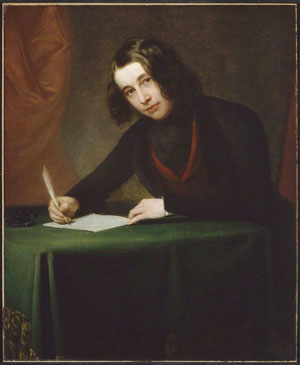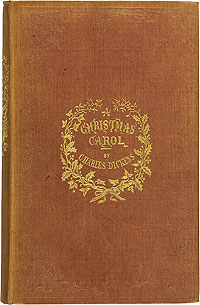 Eagle Feathers #319 – A Christmas Carol
Eagle Feathers #319 – A Christmas Carol
By Bob (Monty) Doherty
Everyone has his or her own favorite Christmas stories, memories and movies. They can range from the classic It’s a Wonderful Life, a story about the difference one person’s life can make in the world, to the recent The Polar Express, a story about a special Christmas train.
One day in the winter of 1842, the year of Somerville’s birth, a train rolled through the city carrying a young man who, shortly after his visit to America, would change the holiday of Christmas forever.

Charles Dickens, 1842
Upon his arrival to Boston, Charles Dickens travelled from the Commonwealth’s capital to the city of Lowell, taking copious notes on everything that he saw. That train – the first American train he ever boarded – rambled past the base of Prospect Hill where the first American flag was flown.
The locomotives’ first stop was at the intersection of Washington Street and Tufts Streets, near the McGrath Highway, which, at that time, was near the site of the McLean Asylum. The station is now gone, but the rails remain.
The train brought the legendary author past the snow-filled pastures of what is now the base of Central Hill and Winter Hill. Dickens saw a land that under the Puritanical law of Governor Bellingham, the successor of John Winthrop, the first governor of MA and a Somerville Ten Hills’ resident, banned the Christmas holiday altogether citing “superstitious festivals held to the dishonor of God.” This ban was in place for 22 years from 1659-1681. At the time of Dickens’ journey Christmas was not, by any means, celebrated with the fervor that it is today.
On his trip to Lowell, he passed a Somerville factory that manufactured doornails and railroad spikes. His observations from the train would one year later be published in his work, American Notes, in which he described how the passengers huddled around the potbelly stoves for heat. The smoke generated by the stoves created what he described as an eerie ghost-like image throughout the train car.
In Lowell, he saw the arduous plight of many mill workers. Dickens had no trouble relating to them because he had been forced to work in a London blacking mill from the ages of 9-11 to help free his parents from debtors’ prison. While the mill conditions in Lowell were difficult, he found them to be better that their English counterparts.
Dickens’ train travelled back through Somerville at the end of the day, and he declared the Boston area to be his favorite of all in America. In fact, he was quoted as declaring the day he spent going to Lowell MA as “the most pleasant I spent in the country.”
In 1843, Dickens published A Christmas Carol, which was wildly successful and critically acclaimed. It incorporated the themes of winter, ghosts and the social injustices of industry. The novella created the phrase: “Merry Christmas” and no fewer than nine motion pictures and countless other adaptations have been made based upon the treasured tale.
Merry Christmas.…everyone.
















Reader Comments